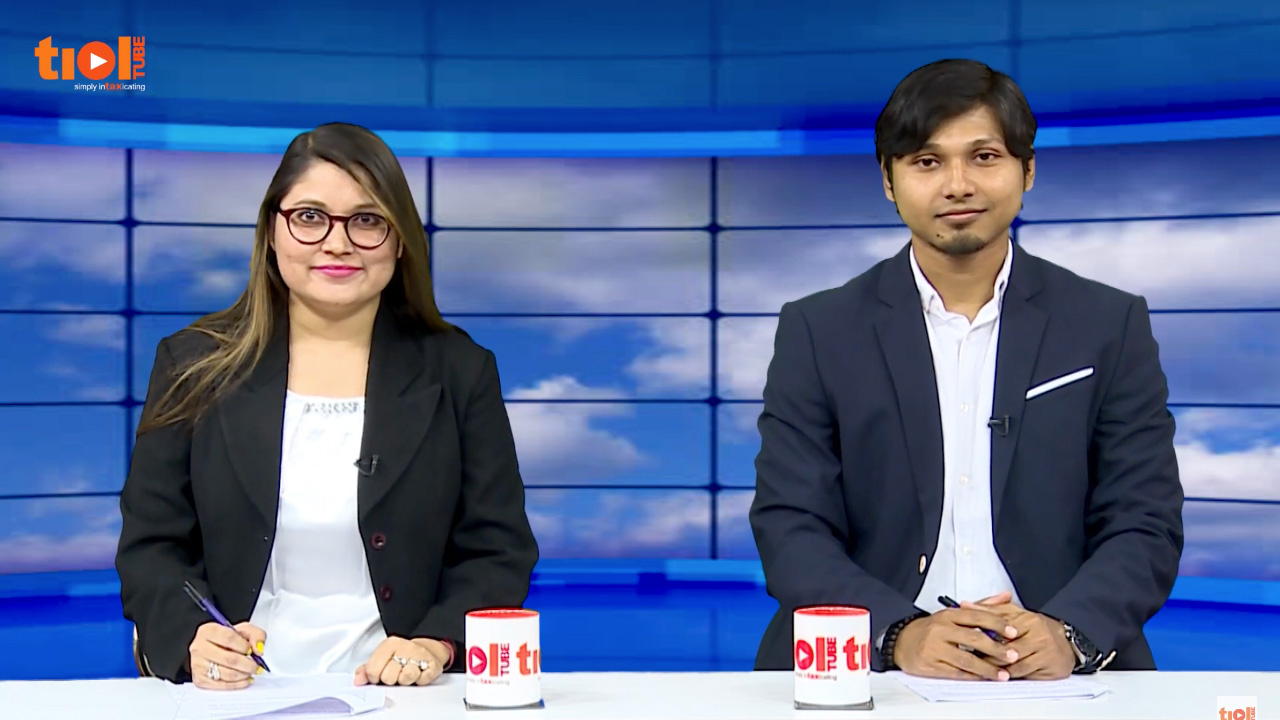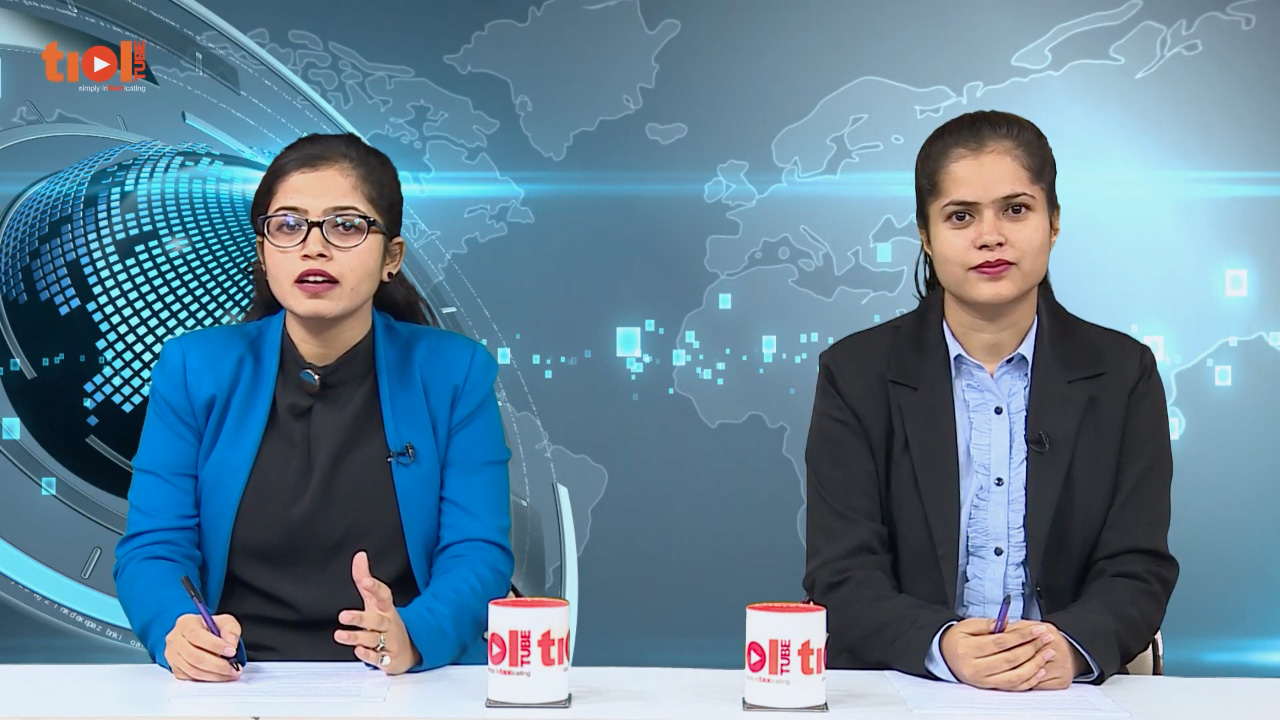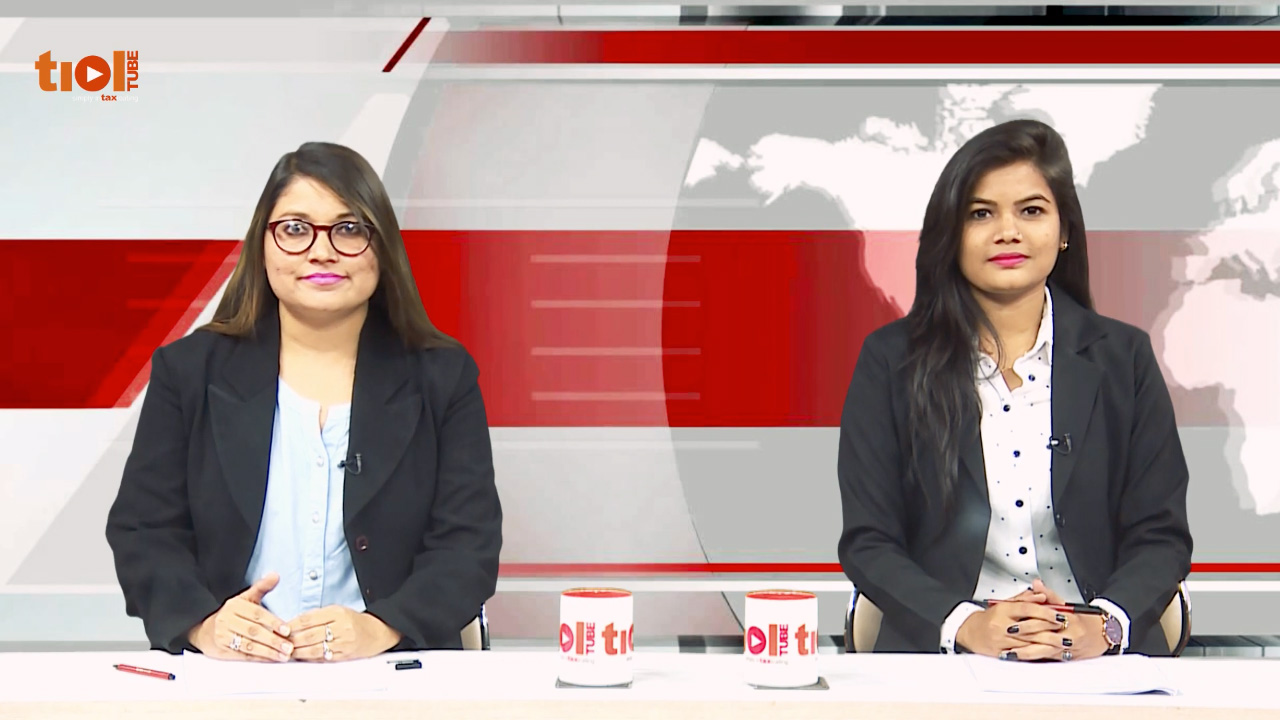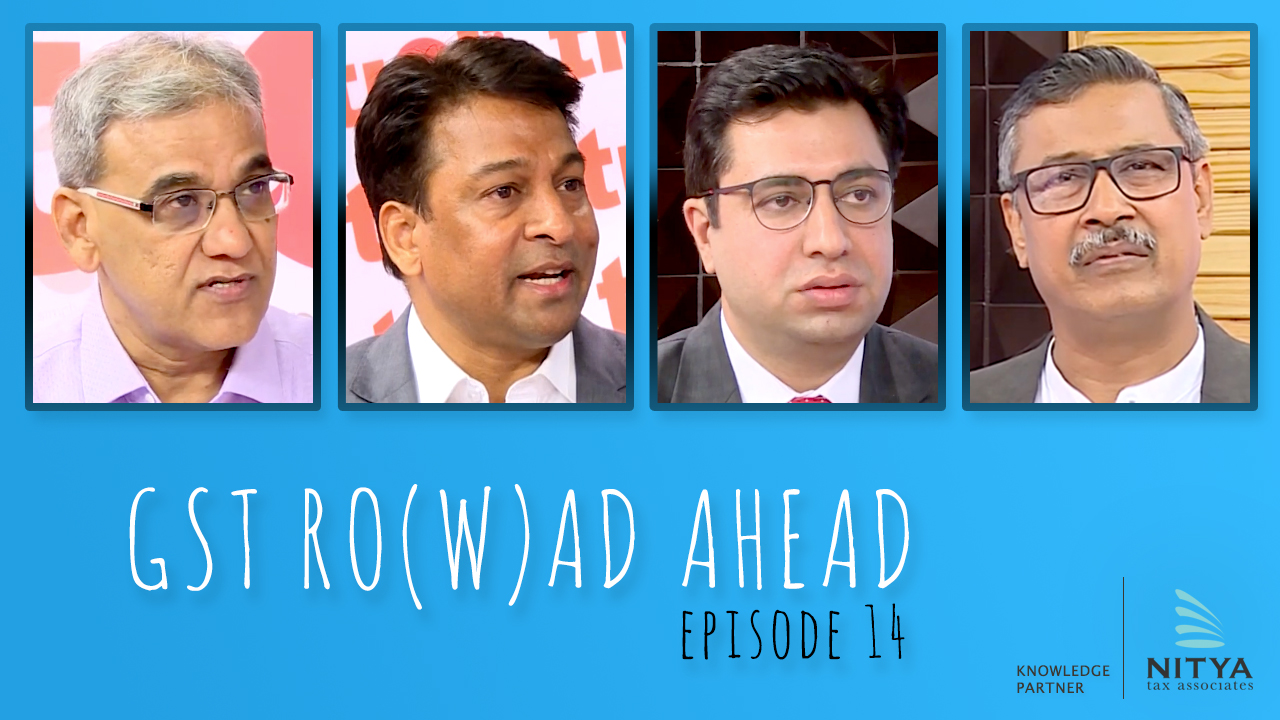|
SERVICE TAX 2019-TIOL-3004-CESTAT-DEL
Raipur Treasure Island Pvt Ltd Vs CC, CE & ST
ST - The issue to be decided is as to whether the assessee is eligible to avail Cenvat credit on services supplied to them by their job workers/contractors for which raw materials have been supplied by them - The demand in question is prior to the amendment of provisions of input services under the Credit Rules i.e. prior to 2011 and also subsequent to that period - The issue is no longer res integra in view of the decision of Andhra Pradesh High Court in case of Sai Sahmita Storages (P) Ltd. which was subsequently followed in various other cases - It was held by various Tribunals/High Court that in such a situation, the assessee would be entitled for benefit of Cenvat credit prior to amendment - The revenue has placed reliance that the services were not directly provided by assessee, but was through their contractors - It is argued that these contractors were employed by assessee, who were provided raw materials to them - Also these contractors have paid the service tax and recovered that from the assessee - Hence, assessee have rightly taken the Cenvat credit as per Credit Rules - It is of no relevance as to whether the construction has been done through the contractors or not as long as service tax is paid, the assessee is entitled for Cenvat credit and subsequent utilisation thereof for payment of service tax - Tribunal in case of EDWL has allowed Cenvat credits to the assessee which was on similar set of facts and circumstances - The impugned order is set aside: CESTAT
- Appeals allowed: DELHI CESTAT
2019-TIOL-3003-CESTAT-MAD
Kansai Nerolac Paints Ltd Vs CCT
ST - Appellant is a manufacturer of paints and varnishes, has manufacturing units located in different parts of India with manufacturing unit also at Chennai -the Head Office at Mumbai was registered as Input Service Distributor (ISD for short) for payment of ST on the input services - the ISD credited such payment to the appellant's cenvat credit account and then distributed the same to its various manufacturing units - the appellant at its ISD office availed cenvat credit on service tax for various input services which was transferred to its Chennai unit and also to other units; etc. -alleging contravention to rule 2(l) of Cenvat Credit Rules, 2004 [CCR], three SCNs were issued by the Revenue - the common factor in all the SCNs is the demand of allegedly ineligible credit, along with recovery of interest under rule 14 of CCR read with section 11 AB of the CEA and imposition of penalty under rule 15 (1) of the CCR - the adjudicating authority partly allowed and partly disallowed the cenvat credit, as proposed -the appellant thereafter preferred appeals against the disallowed portion of cenvat credit before the Commissioner (Appeals) who upheld the disallowance of cenvat credit, hence appeal before CESTAT.
Held: The disallowance has been upheld mainly for want of nexus -surprisingly, without discussing as to the eligibility of the ISD for distribution, the adjudicating authority has simply brushed aside the claim as not correct, which has also been upheld vide impugned orders - both the authorities have referred to rule 2(m) of CCR, but however, the applicability or violation of the same has not at all been pointed out -it is also undisputed in these cases that the credit was availed based on the credit distributed by ISD -apparently, the rejection is made not because of any lacunae in the invoice/invoices, no whisper as to any violation of rule 9 of CCR and nor is it the case of the Revenue that the registered ISD was not eligible to distribute service tax to any of its units -from rule 7 of CCR, it is very clear that two conditions are to be satisfied by an ISD and it is, therefore, for the Revenue to give a finding as to the violation, if any, of any or both the conditions of rule 7 -in the absence of any such specific findings, there cannot be any denial of the cenvat credit distributed for consumption at the units - in the case on hand, without causing any investigation or enquiry as to the claim of the appellant, the adjudicating authority has doubted the availment of ST credit by the ISD itself despite a clear pleading that the jurisdictional Commissionerate has accepted -admittedly, the assessee-appellant has only sought for the consumption of credit that was claimed to be available with the appellant's ISD which was explained to have been passed on -so, in the absence of any disputes as to the eligibility of credits availed by the ISD, the same cannot be questioned at the receiver's end, who only sought for consumption of the same -the High Court of Karnataka had an occasion to analyse this aspect of ISD, in the case of ECOF Industries Pvt. Ltd. - 2011-TIOL-770-HC-KAR-ST the Court has analysed the scope and applicability of Rules 2 (k), 2(l), 2 (m) and Rule 7 - what transpires from the above is clear, that there are only two limitations for distribution of credit by an ISD and in the case on hand, Revenue has not made out a case as to the non-satisfaction of the above two conditions -consequently, there being no deficiency as to the eligibility of the ISD for distribution, no denial could be made in the hands of the recipient who has only consumed the same -in view of the above, clearly, the disallowance as well as the impugned order cannot sustain for which reason the impugned orders are set aside and the appeals are allowed: CESTAT [para5.1, 5.5, 5.6, 6, 7]
- Appeals allowed: CHENNAI CESTAT
2019-TIOL-3002-CESTAT-BANG
Roman Tarmat Ltd Vs CC, CE & ST
ST - The assessee is engaged in execution of Works Contract with M/s Power Grid Corporation of India Ltd. for setting up of 400/220 KV Sub-Stations - Department issued a SCN to the assessee demanding Service Tax classifying the work undertaken by them under "Site Formation and Clearance, Excavation, Earthmoving and Demolition Service" along with interest and penalties - Ongoing through the Letter of Award and Bill of Quantities, it is abundantly clear that substantial portion of the payment goes towards Earth work in filling with borrowed Earth - As the contract contemplates various items of works along with the cost of material involved - The assessee placed on record the proof of payment of VAT on the subject contract under Kerala VAT which recognises the contract to be Works Contract - Therefore, in view of the Supreme Court’s decision in L&T - 2015-TIOL-187-SC-ST the contract is to bee seen as a non-viviceptable contract and therefore, it is not chargeable to Service Tax before 01.06.2007 - The contract being indivisible, no Service Tax can be levied upon assessee before 01.06.2007 - The revenue submits that the impugned SCN also covers the period June 2007 to September 2007 - However, assessee submits that the SCN has mistakenly included the payments which were received after April 2007 though the service was rendered before April 2007 - He submits that tax liability, if at all, is on the taxable event i.e. the date of provision of service - Therefore, their case is entirely covered by decision of Supreme Court in case of L&T - Just because the payments were received after March 2007, it cannot be said that the service was rendered when the amounts were realized - The assessee further submitted that the appeal survives on limitation also as no mens rea could be attributed to interpretation of statutory provisions - Assessee has a strong case on merits, Tribunal is not going into the issue of limitation: CESTAT
- Appeal allowed: BANGALORE CESTAT
CENTRAL EXCISE
2019-TIOL-3001-CESTAT-DEL
Rotocast Industries Ltd Vs CCE & C
CX - The assessee is engaged in manufacture of excisable goods and availing Cenvat credit benefit under CCR, 2004 - Department observed that the assessee is manufacturing and clearing casting items (machinery parts) to various customers - These casting items were manufactured as per the specification of drawing supplied by buyers of such casting items - Department while forming an opinion that the value of said drawings has not been added in assessable value, the SCN was served upon assessee proposing the recovery of amount alongwith interest at the appropriate rate and the proportionate penalty - Apparently and admittedly the drawings herein, for the goods manufactured/produced, are provided by the customers and the value thereof has not been included in the assessable value - Irrespective those drawings have been provided free of cost to the assessee, the value thereof is required to be included as per Rule 6 itself - Even in terms of Section 4, the value of these drawings is something else in addition to money - Hence, the value of impugned drawings is liable to be included in assessable value - Coming to the aspect of imposition of penalty on assessee, the question of confusion has no meaning once it is statutory mandate that any other expertise as that of drawings, technical knowhow etc., if is utilized in the manufacture of a product the value thereof, irrespective not in terms of money has to be the part of the transaction value - Accordingly, no infirmity found in the order under challenge, same is hereby upheld: CESTAT
- Appeal rejected: DELHI CESTAT
2019-TIOL-3000-CESTAT-KOL
SAIL Vs CGST & CE
CX - The assessee is engaged in manufacture of alloy steel and products thereof - SCN was issued alleging wrong availment of cenvat credit - On an objection being raised by CERA, the assessee reversed the amount in the month of July, 2009 to their credit account - SCN sought to appropriate the amount already reversed; to charge interest and to impose penalty under Rule 15 of CCR, 2004 read with Section 11AC of CEA, 1944 - The short point involved is as to whether a mere taken of CENVAT credit facilities without actually using it, would carry interest as well as penalty - It was further considered that the Appellate Tribunal had come to a definite conclusion to the effect that in the instant case the assessee had merely taken CENVAT credit facilities and before utilizing the same, the Department had reversed it and therefore, the assessee was not liable to pay interest and penalty - The entire argument put forth from the side of Revenue was based upon the decision in case of Ind-Swift Laboratories Ltd. - 2011-TIOL-21-SC-CX - The erstwhile Rule 14 of Cenvat Credit Rules read as "taken or utilised", which had been amended and substituted by the words "taken and utilised" - Such an amendment conveys the intent of legislature and hence, substantive benefit cannot be denied to the assessee - Further, if credit has been taken but not utilised and is subsequently reversed, it leads to no consequence and results in a revenue neutral situation - Considering the facts and circumstances of the case, recovery of interest is untenable - Accordingly, the impugned order is set aside: CESTAT
- Appeal allowed: KOLKATA CESTAT
2019-TIOL-2999-CESTAT-AHM
Kiran Syntex Ltd Vs CCE & ST
CX - On visit by Revenue officers it was found that certain amount of POY procured by the appellant from the suppliers duty free on the strength of CT-3 certificate was unaccounted in the factory premises -consequently, revenue issued notice demanding duty on the material which was found unaccounted in the premises -Revenue sought to demand duty on the said goods under the proviso to section 3 of the CEA treating the said goods as manufactured by the appellant - demand confirmed along with interest, penalty imposed - penalty also imposed on Joy M.Godiwala, Director of the appellant firm - appeal to CESTAT.
Held: On the issue of limitation, the impugned order rightly relied on the decision of High Court of Gujarat in the case of Neminath Fabrics Pvt. Ltd. - 2011-TIOL-10-HC-AHM-CX wherein it was held that mere knowledge of revenue is not sufficient if the factors necessary for invoking proviso to section 11A are otherwise present - further, nothing found in section 11A which restricts its applicability to only manufacturer -section 11A applies to any duty leviable - in the instant case, the appellant failed to account for a certain quantity of raw material procured by them and consequently, they are liable to pay duty - the proviso to section 3 of the CEA applies only to goods manufactured or produced by a 100% EOU - it, therefore, cannot be applied to the said goods which were clearly not produced by the appellant -in these circumstances, demand of duty in terms of proviso to section 3 of CEA cannot be upheld -in terms of clause d(ii) of the notification 1/95-CE dated 4.1.1995, only an amount equal to the duty forgone while procuring the said goods under CT-3 can be demanded -in view of above, demand to the extent exceeding the demand of duty forgone on procurement of said goods is set aside -penalty is also consequently, revised under section 11AC to the re-quantified duty - there was diversion of significant quantity of material procured duty free under CT-3 - Joy M. Godiwala was director of the unit and he had also admitted in his statement that all day to day activities of the unit including work related to central excise and customs was carried out as per his direction and instructions -in these circumstances, significant force found to invoke rule 26 of Central Excise Rules and to impose penalty on Shri Joy M. Godiwala -in view of the above, the appeal of M/s.Kiran Syntex is partly allowed and the appeal filed by Shri Joy M. Godiwala is dismissed -the matter is remanded solely for quantification: CESTAT [para 5, 5.2]
- Appeals disposed of: AHMEDABAD CESTAT
CUSTOMS
2019-TIOL-2998-CESTAT-MUM Prakash Chandra Pandya Vs CC
Cus - The revenue received the information that assessee and Nandgopal Govind Swami Naidu were importing different Gym equipment through M/s Estelle Impex and were evading customs duty by undervaluation and misdeclaration of goods - On the same investigation, SCNs on alleged undervaluation of imported cutting blades, was also issued to M/s. Estelle Impex, Shri Dayanand Stalin, (Proprietor of M/s. Estelle Impex), assessee (Partner of M/s. CNG & Co.), Nandgopal Naidu and Niranjan Putran seeking to enhance the assessable value declared, confirming differential duty alongwith interest while proposing to impose penalty on assessee - The assessee submits that the investigation into impugned case is offshoot of investigation conducted against CNG & Co. and Tele-brands India Pvt. Ltd. - The evidence relied upon by department is identical/similar - Therefore, following the ratio of Tribunal's judgement in Tele-brands India Pvt. Ltd, the impugned order may be set aside - The instant case also relies on unauthenticated Email and retracted statements - In view of categorical findings by Tribunal nothing survives in the case - In fact in the case against Tele-brands, some confirmation by originating country was there, which was not relied upon by Tribunal as the same was not authenticated and corroborated - Such communication also is not available in this case - As the very reasons for rejection of transaction value are negated, reference to NIDB data is of no help - Therefore, the impugned order is not tenable, same is set aside: CESTAT
- Appeals allowed: MUMBAI CESTAT | |







